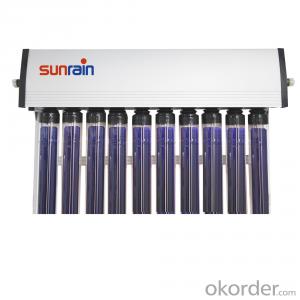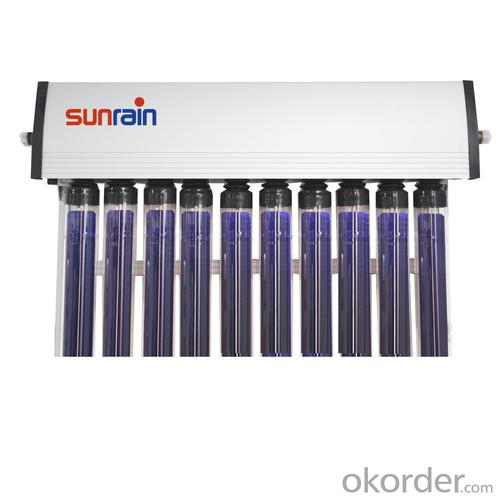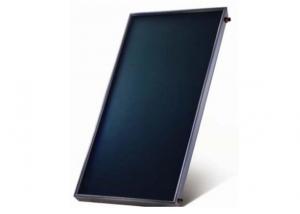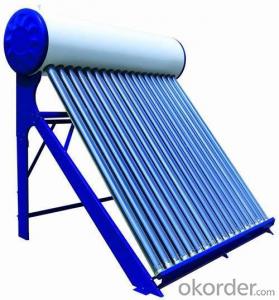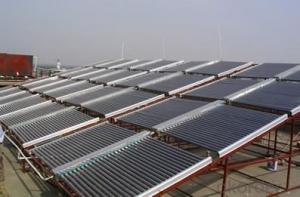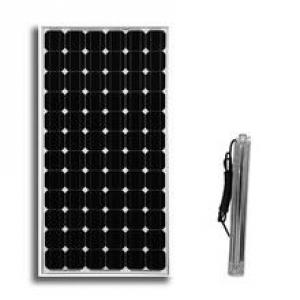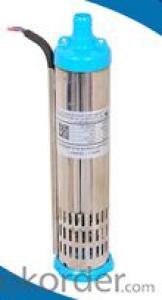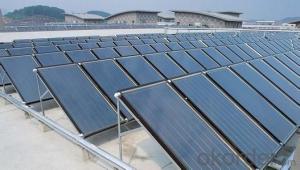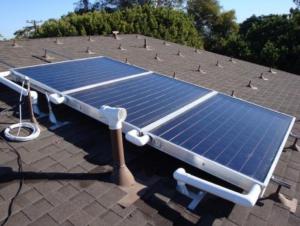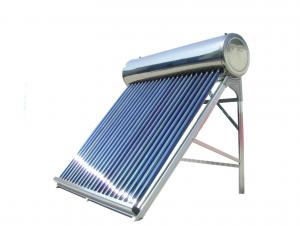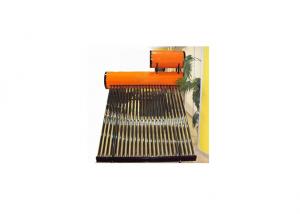Rheem Solar Domestic Series Heat Pump
- Loading Port:
- China Main Port
- Payment Terms:
- TT OR LC
- Min Order Qty:
- -
- Supply Capability:
- -
OKorder Service Pledge
Quality Product, Order Online Tracking, Timely Delivery
OKorder Financial Service
Credit Rating, Credit Services, Credit Purchasing
You Might Also Like
| Type | Circulation heating/Domestic |
| Heating Capacity | 3.5kw~8.7kw |
| COP | ≥3.7 |
| Rated water temp. | 55℃ |
| Running ambient temp. | -7~43℃ |
| Compressor | Rotary |
| Refrigerant | R410a |
| Power supply | 220~/50/1 |
| Certification | CE, CB, SABS |
Features
GMCC Compressor.
Evaporator is larger than usual size to keep its high efficiency.
Water pressure reaches 0.6Mpa-0.9Mpa.
Refrigerant R410A.
Full automatically start up and stop with setup temperature.
Small space and easy install&maintain.
- Q: Can a solar water heater be used in areas with limited access to water storage tanks?
- In areas with limited access to water storage tanks, a solar water heater can still be utilized. Although water storage tanks are typically employed to store hot water for future use, they are not a prerequisite for the functioning of a solar water heater. Solar water heaters operate by utilizing the sun's energy to directly heat water or through a heat transfer fluid. In situations where water storage tanks are not easily accessible, different approaches can be employed to temporarily store the heated water. For instance, instead of employing a dedicated water storage tank, the solar water heater can be directly connected to the plumbing system. This enables hot water to flow directly from the solar collector to the faucets and fixtures in the building, eliminating the necessity for a separate water storage tank. Another option is to utilize a smaller storage tank or a heat exchanger, which can hold a limited amount of hot water. This allows for immediate use of the heated water and reduces the requirement for larger storage tanks. In certain cases, it may also be feasible to implement a hybrid system that combines a solar water heater with a smaller storage tank and an auxiliary heating source, such as a gas or electric heater. This ensures a constant supply of hot water even during periods of low solar availability. Consequently, while water storage tanks are commonly used alongside solar water heaters, they are not indispensable in areas with limited access. Alternative methods can be employed to efficiently store and distribute the heated water, enabling the utilization of solar water heaters in diverse situations.
- Q: Can a solar water heater be used in areas with high levels of dust?
- Yes, a solar water heater can be used in areas with high levels of dust. However, it is important to regularly clean the solar panels to ensure maximum efficiency and performance. Dust buildup on the panels can reduce their ability to absorb sunlight and convert it into heat energy. Regular maintenance and cleaning will help to optimize the performance of the solar water heater even in dusty areas.
- Q: Can a solar water heater be used in areas with limited access to solar rebates?
- Yes, a solar water heater can still be used effectively in areas with limited access to solar rebates. While rebates can certainly make the initial investment more affordable, the long-term savings and environmental benefits of using a solar water heater still make it a viable option. The system can significantly reduce energy bills and reliance on fossil fuels, even without rebates. Additionally, there may be other financial incentives available, such as tax credits or grants, that can help offset the costs for those in areas without solar rebates.
- Q: Can a solar water heater be used in areas with high winds?
- Yes, a solar water heater can be used in areas with high winds. However, it is important to ensure that the system is properly anchored and secured to withstand the strong gusts. Additionally, selecting a durable and robust design can help minimize any potential damage caused by the high winds. Regular maintenance and inspections are also recommended to ensure the system's optimal performance even in windy conditions.
- Q: Can a solar water heater be used in areas with limited installation options?
- Yes, a solar water heater can be used in areas with limited installation options. Solar water heaters can be installed on rooftops, terraces, or even ground-mounted in open areas. They are flexible in terms of installation and can be adapted to fit various space constraints. Additionally, there are different types of solar water heaters available, such as integral collector-storage systems or thermosiphon systems, which may offer more installation options depending on the specific requirements of the area.
- Q: Can a solar water heater be installed by a homeowner or does it require professional installation?
- While it is possible for a homeowner to install a solar water heater, it is generally advised to seek professional installation. Although the installation process of a solar water heater is not excessively complicated, it still entails dealing with plumbing, electrical connections, and potentially making structural modifications. By opting for professional installation, you can guarantee that the installation is carried out correctly and in accordance with local building codes and regulations. Moreover, professionals possess the expertise and experience to determine the optimal installation location and make any required adjustments or repairs. Consequently, this will lead to a more efficient and effective solar water heating system. However, if you possess a solid understanding of plumbing and electrical work and feel confident in your abilities, you may opt to install a solar water heater on your own. In such a case, it is crucial to thoroughly research and adhere to the manufacturer's instructions, as well as consult with local authorities to ensure compliance with any necessary permits or regulations.
- Q: Advantages and disadvantages of solar water heater
- 5, due to the use of electricity or gas, there is no risk of electric shock or poisoning, so solar heatWater safety is very high.But solar water heaters have their drawbacks, too:1, the initial investment.2, solar water heater on the installation position requirements are very strict, in the city generally only live inThe top floor or the owner of the villa may be installed.
- Q: How does a solar water heater impact water heater temperature consistency?
- A solar water heater can help maintain a consistent water heater temperature by relying on the sun's energy to heat the water. This renewable energy source ensures a steady supply of heat, reducing fluctuations in water temperature compared to traditional water heaters that depend on fossil fuels or electricity.
- Q: Can a solar water heater be used in areas with building restrictions?
- Yes, a solar water heater can generally be used in areas with building restrictions. Solar water heaters are considered environmentally friendly and energy-efficient, which makes them an attractive choice for many homeowners and businesses. However, it is important to check the specific building restrictions and obtain any necessary permits or approvals before installing a solar water heater in such areas.
- Q: How does a solar water heater impact the electricity consumption of a household?
- A solar water heater significantly reduces the electricity consumption of a household as it utilizes sunlight to heat the water, eliminating the need for electric heating elements. This results in lower energy bills and a reduced reliance on conventional electricity sources for heating water.
Send your message to us
Rheem Solar Domestic Series Heat Pump
- Loading Port:
- China Main Port
- Payment Terms:
- TT OR LC
- Min Order Qty:
- -
- Supply Capability:
- -
OKorder Service Pledge
Quality Product, Order Online Tracking, Timely Delivery
OKorder Financial Service
Credit Rating, Credit Services, Credit Purchasing
Similar products
Hot products
Hot Searches
Related keywords
